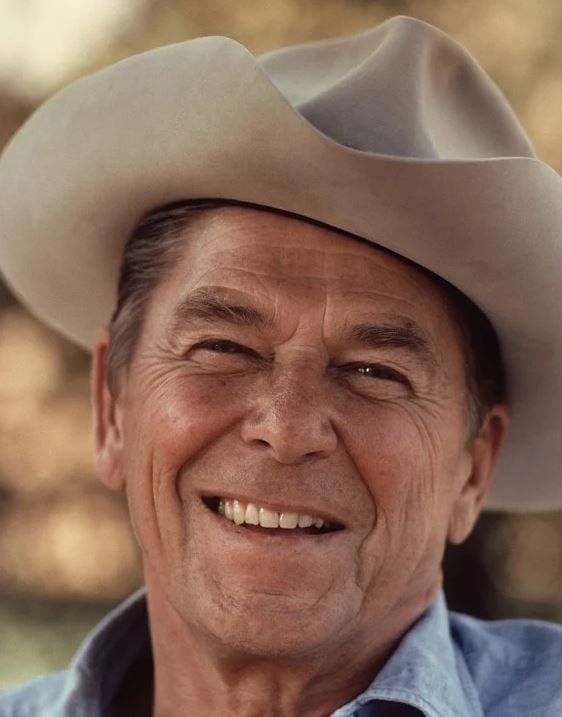
Thoughts on Ronald Reagan and the Current State of the Republican Party
I think Ronald Reagan may have been the best president of the modern era. I know that will make my liberal friends cringe. Additionally, I have recently gained new respect for Clinton and Obama, and I know that will likewise make my conservative friends cringe. I’ve always considered myself to be more conservative than liberal. But I just cannot support the current direction of the Republican Party and now consider myself to be a “Recovering Republican”. I didn’t leave the Republican Party. The Republican Party left me. And I wonder “What would Ronnie think?”
Speculating on what Ronald Reagan might think of the modern Republican Party is risky and involves consideration of his political philosophy, policies, and the values he championed during his presidency from 1981 to 1989.
Key Points of Reagan’s Ideology:
- Conservatism: Reagan was a proponent of traditional conservative values, emphasizing limited government, individual liberties, free markets, and a strong national defense. He likely would have been concerned about the confrontational form of conservativism espoused by many contemporary Republicans.
- Optimism: He often conveyed a sense of optimism about America’s future, believing in the ability of the American people to solve their problems. He would have been concerned about current rhetoric designed to pit Americans against one another.
- Bipartisanship: Reagan worked with Democrats on significant legislation, showcasing a willingness to compromise for the greater good. President Reagan and Tip O’Neill, Speaker of the House, believed that partisanship ended after 6:00 PM and should never be a barrier to friendship.
- Focus on Issues: His presidency was marked by a focus on economic issues, such as tax cuts, deregulation, and a strong anti-communist foreign policy. He likely would have been concerned by the Republican Party’s current often favorable response to the totalitarian governments in both Russia and China.
Speculation on His Views of Today’s GOP:
- Populism vs. Traditional Conservatism: Reagan might be concerned about the rise of populism within the party, which sometimes shifts focus away from traditional conservative principles. He valued ideological coherence over personality-driven politics.
- Divisive Rhetoric: The modern Republican Party has seen an increase in divisive and confrontational rhetoric. Reagan was known for his ability to unite people and might disapprove of the factionalism that can alienate moderate Republicans and independents.
- Economic Policies: Reagan’s foundational economic principles might resonate with today’s emphasis on tax cuts and deregulation. However, he also expressed concern over increasing national debt and the impact of tax cuts without corresponding spending reductions. He was a strong proponent of free trade and believed that it had benefitted the US economy by opening markets and encouraging competition and he played a significant role in establishing trade agreements that laid the basis for the North American Free Trade Act. In contrast, today’s Republican Party is more concerned with protectionist policies and tariffs and creating trade barriers which they believe will somehow benefit the country as a whole.
- Social Issues: Reagan had a more moderate stance on certain social issues than some factions of today’s GOP. He might find the current approach to issues like immigration and LGBTQ+ rights more contentious than his more inclusive positions. He was slow to respond to the AIDS crisis but was not as overtly hostile to the issues as the current GOP. Reagan advocated a restriction of federal funding for abortions but did not back a total ban on abortions.
- Foreign Policy: Given his strong anti-communist stance and emphasis on diplomacy, Reagan may critique some of the modern party’s more isolationist tendencies. He might also be concerned about the current positive approach towards totalitarian regimes.
- Immigration: Reagan had a different approach to immigration than the current GOP. He backed the Immigration Reform and Control Act of 1986 which provided emergency amnesty for approximately 3,000,000 undocumented immigrants. Many of today’s Republicans would label Reagan’s amnesty program as a failure and certainly not one that they would be willing to repeat. Reagan’s policies were aimed at addressing the historic realities of immigration and included provisions for legalization which is currently opposed by most Republicans.
In summary, while Reagan might appreciate certain aspects of the modern Republican Party, such as a commitment to conservative economic principles, he would likely be critical of the divisive politics, populism, and the lack of bipartisan cooperation that he valued. Reagan’s views might resonate with traditional conservatives who still value free market principles. Likely though, they would face pushback from factions within the party that prioritize the nationalist policies. Many Republicans today see Reagan’s approach as outdated or incompatible with their current priorities which emphasize immediate economic protection over long term global engagement. This assessment is speculative, of course, and based on my interpretation of his beliefs and leadership style.
For a deeper dive into Reagan’s legacy, consider reading more from the Ronald Reagan Presidential Foundation (www.reaganfoundation.org)
/

Leave a Reply